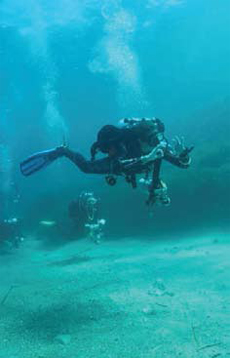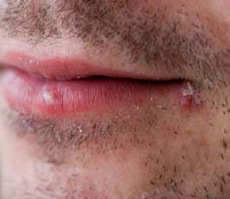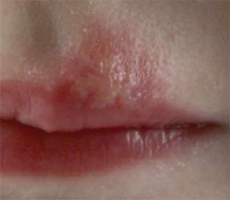




| Home | Features | Club Nights | Underwater Pics | Feedback | Non-Celebrity Diver | Events | 3 July 2025 |
| Blog | Archive | Medical FAQs | Competitions | Travel Offers | The Crew | Contact Us | MDC | LDC |

|

|
 
 |
 |
ISSUE 7 ARCHIVE - DIVING DENTISTCelehte FortuinAct 1: Scene 1:Friend (Trying hard to be nonchalant): Uhm, hey... what's that on your lip? You: It's a cold sore. Friend: Oh, OK. And even though Friend tried so hard, the barely concealed horror and fear showed in his eyes. The red warning lights and sirens have been activated and screamed loudly in his panicked mind: "Run! Run! Terminate interaction". You can see he wants to get away from you and your lip without hurting your feelings. It's not working. OK, I admit, I don't get out much and cooking up that scenario was fun. But not entirely true. Q: I suffer from the occasional cold sore and not only is this painful, but during my diving holidays a huge inconvenience. Is diving with them safe and how can I stop them on holidays? DD: The cold sore virus is very common and is carried by up to 80% of the population. It's caused by the "Herpes Simplex Virus" (HSV). They are highly infectious and are capable of spreading easily to other parts of the body. Physical contact is required for the spread of the virus between individuals. Unfortunately, once you've been infected, the virus cannot be removed and lies dormant in the nerves supplying feeling to the face and mouth. It is not until the virus has been activated by certain triggers that the classic symptoms appear. |
 |
 |
Common triggers include:
|
 |
 |
They are completely safe to dive with.
You may find the scab softening and
falling off repeatedly, being immersed
in water so often. No big deal. Just stay
away from the cleaner shrimp.
The biggest problem is how to reduce the risk of spreading this infection. Here are a few suggestions:
|
 |
|
Infection spreading through
contaminated water, air and inanimate
objects has not been that well
documented and following the above,
should lower the risk.
If your concern is over spreading the cold sore through the exchange of regulators during buddy checks or on dives (safety drills, out-of air situations), it shouldn't be. 80% of us are carriers anyway and I'd rather be the one with a cold sore and alive, than the one without it and... well, you get my drift. On diving holidays make sure you get plenty of rest and apply sunscreen liberally, especially to the lips and face. First infections can be treated by oral antiviral tablets, prescribed by your dentist or GP. Recurrences are normally treated with antiviral creams such as Zovirax. Apply upon first tingle, and keep reapplying until healing. It's never too late or early to start with the treatment. Happy flossing and diving! Celehte can normally be found singing her way through the day at her Fulham practise. Any questions or queries can be sent here or you can call Fulham Dental Care on 020 7610 9400. |
 | |
Previous article « Medical Q&As Next article » Paul Toomer: Agony Aunt Back to Issue 7 Index | ||